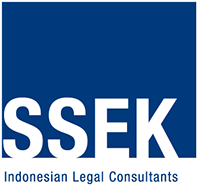 E-signatures in Indonesia are regulated by Law No. 11 of 2008 regarding electronic information and transactions (Law No. 11/2008) and Government Regulation No. 82 of 2012 regarding the implementation of electronic systems and transactions (GR No. 82/2012). Under the relevant regulations, an e-signature is defined as containing electronic information that is attached to, associated with or linked to other electronic information that is used as a verification and authentication tool. E-signatures in Indonesian law have lawful legal force and legal effect as long as they meet the following requirements: (i) e-signature creation data is associated only with the signer; (ii) e-signature creation data at the time of the electronic signing process shall be only in the authorisation of the signer; (iii) any alteration to e-signatures that occurs after the time of the signing is traceable; (iv) any alteration to electronic information associated with the e-signature after the time of the signing is traceable; (v) certain methods are adopted to identify the signer; (vi) and certain methods are adopted to demonstrate that the signer has given his or her consent to the associated electronic information. The regulations do not stipulate the qualifications of ‘certain methods’ as mentioned in points v and vi. However, we believe that these methods are those that have the ability to secure originality and may be traced back to signers for authentication purposes. Function and types of e-signature In Indonesia, there are two types of e-signature: certified e-signature and uncertified e-signature. Certification is provided by an independent certification company, as regulated in Law No. 11/2008 and GR No. 82/2012. Applicability in practice E-documents are admissible as evidence in disputes settled through either the courts or arbitration. Please note, however, that for e-documents to be admissible in courts or arbitration bodies, they must be at least generated or transmitted through an electronic system that in general satisfies the following requirements: (i) able to retain the electronic information and/or e-documents in their entirety in accordance with the relevant laws and regulations; (ii) able to protect the availability, intactness, authenticity, confidentiality and accessibility of electronic information in the implementation of such electronic system; (iii) can be operated pursuant to the procedures or instructions for the implementation of such electronic system; (iv) equipped with procedures or instructions announced in a language, information, or symbol that can be understood by the party related to the implementation of such electronic system; and (v) has a continual mechanism for maintaining the novelty, clarity and accountability of the procedures or instructions. Note that even if an e-signature is on an e-document being transmitted and generated by a system that complies with Law No. 11/2008 and GR No. 82/2012, if it does not satisfy the validity and principles of a contract then such e-signature and e-document may be voidable under the law or automatically void by law, as far as Indonesian civil law is concerned. Exceptions Deeds of Sale and Purchase of Land and Buildings and Articles of Association in view of the establishment of a limited liability company are examples of where e-signatures and e-documents are not recognised under Indonesian law. |
SSEK Legal Consultants
14th Floor, Mayapada Tower
Jl. Jend. Sudirman Kav. 28
Jakarta 12920, Indonesia
Tel: (62) 21 521 2038 / Fax: (62) 21 521 2039
Email: bezalielerlan@ssek.com
soefiendrasoedarman@ssek.com
www.ssek.com



































 SSEK Legal Consultants
SSEK Legal Consultants Rusmaini Lenggogeni
Rusmaini Lenggogeni Denny Rahmansyah
Denny Rahmansyah







